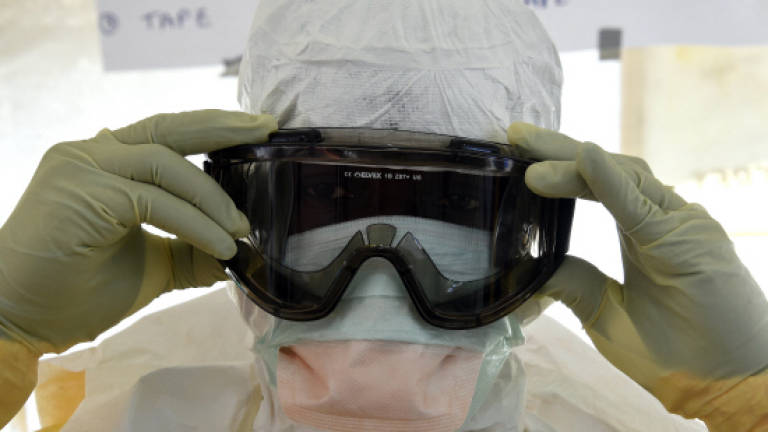Liberia's Sirleaf sees signs of Ebola 'stabilisation'

PARIS: Liberian President Ellen Johnson Sirleaf said Wednesday the Ebola outbreak that has devastated her country was showing signs of stabilising as the official death toll rose again.
"We are beginning to see stabilisation, even in Monrovia which has been hit the hardest, we are beginning to see a slowdown in the numbers of people reporting to a treatment centre," Sirleaf told France 24 news channel.
"That's something that tells us... that we are finally on the road to solving this."
Liberia has accounted for more than half of Ebola deaths, with the official toll rising to 3,338 Wednesday, according to the World Health Organization (WHO).
Her comments come as the African Development Bank (ADB) announced $155 million (122 million euros) of new aid for Ebola-hit nations, with Liberia getting the largest slice -- $62 million.
The epidemic has crippled the country's already weak health services, killing 89 health workers, and its spiral out of control has prompted stark warnings of an explosion of cases and complete collapse of the fragile post-war society.
WHO has sounded grave warnings over the possibility of tens of thousands more cases in the coming months.
However a more optimistic Sirleaf said this was "absolutely not" going to happen.
"I am just waiting now for them to get the recent statistics, and I hope they will admit this is just simply wrong and that all of our countries are getting this thing under control."
She hailed an international response which has seen the International Monetary Fund fast-track much-needed aid and the US send critical supplies and troops to the country to build new treatment centres.
The new cash from the ADB is a mixture of loans and donations with Guinea, where the outbreak began, receiving $33 million, while Sierra Leone will get $51 million. Neighbouring Ivory Coast has been given $9 million in case the disease spreads there.
The bank is also giving an extra $10 million to encourage African doctors and nurses to go to Liberia, Sierra Leone and Guinea to help combat the virus.
"We have to admit that the international response was late in coming, and based on our own limited capacity to respond, we had quite an acceleration in the disease," Sirleaf said.
"Today that has changed, the international response is quite large... so now we are very hopeful that while it was late, we now have the capacity to be able to address this in a very significant way."
Sirleaf admitted the economic impact of the outbreak would be dire.
"We have a $132 million reduction in our budget, which is close to $600 million anyway, and so we are going to be hit hard, however we have natural resources... once we beat Ebola, we are going to bounce back." – AFP